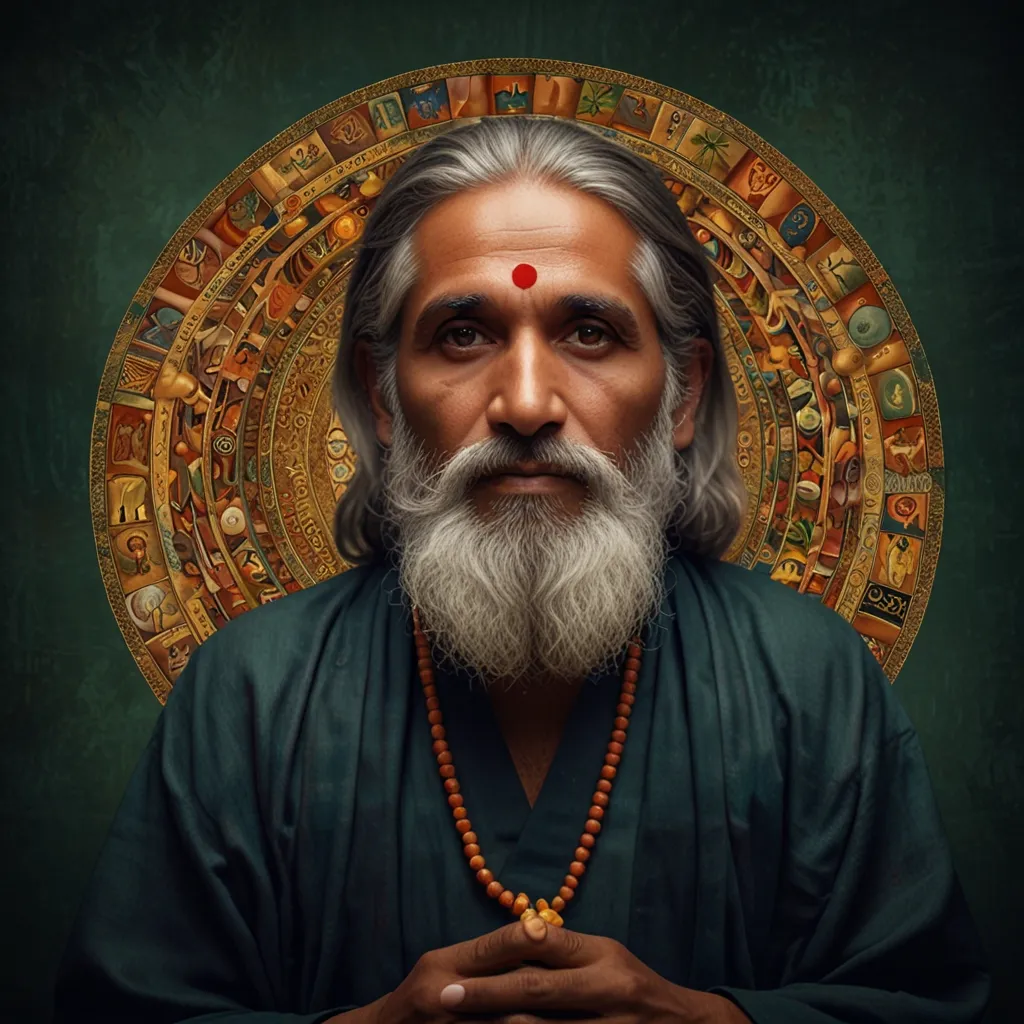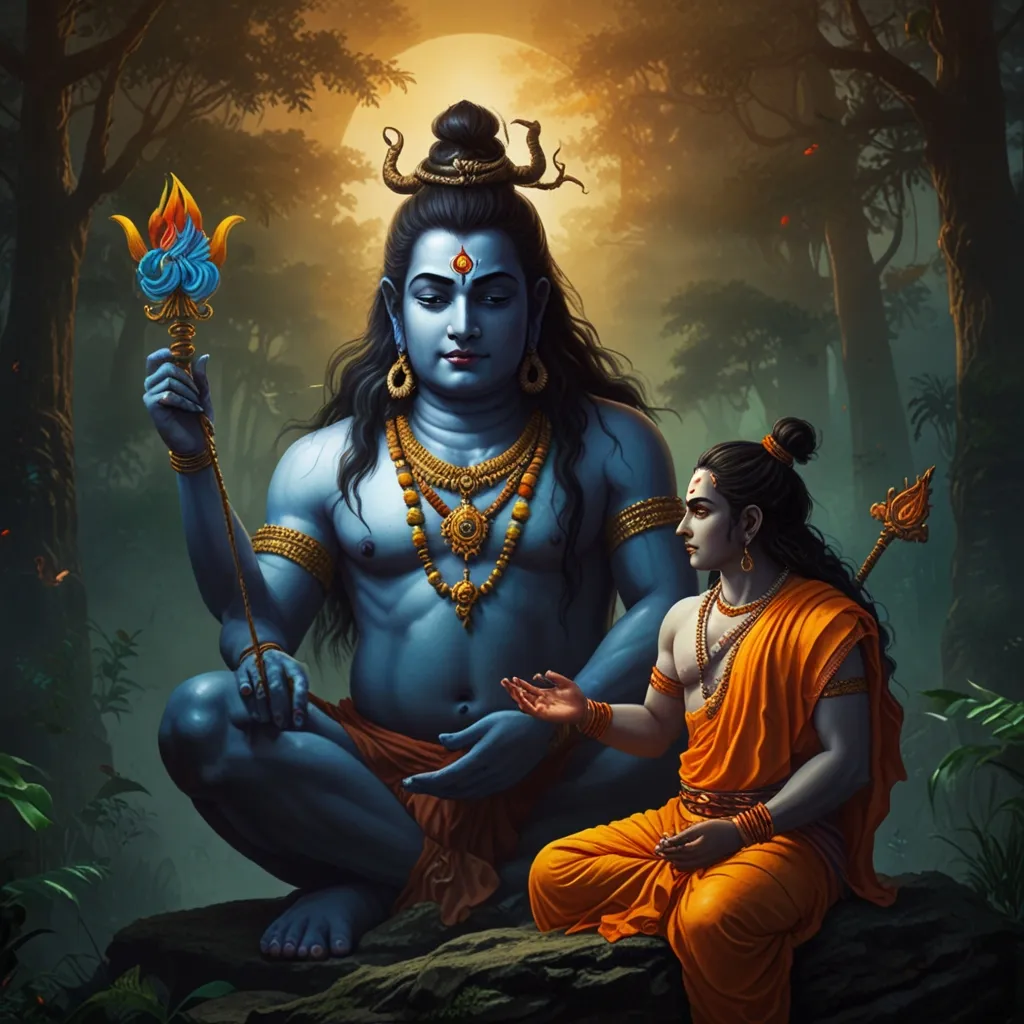In Hindu mythology, the world of gods and demons is filled with captivating tales, and the story of Jalandhara is no exception. Born from the churning of the ocean, Jalandhara is a fascinating figure whose life is a mix of divine origin, remarkable strength, and a cautionary tale about the pitfalls of pride.
Jalandhara’s name, translating to “the one born from the sea,” hints at his extraordinary beginnings. From a young age, his strength and commitment to justice set him apart. As a ruler, he was loved and respected, leading his kingdom with a sense of fairness and kindness that won the hearts of his people.
His path to power took a pivotal turn when he married Vrinda, a woman both beautiful and virtuous. Vrinda was a devotee of Lord Vishnu, and her pure devotion granted her immense strength. Together, Jalandhara and Vrinda ruled wisely, bringing peace and prosperity to their realm.
But Jalandhara’s ambitions eventually led him to challenge the gods, believing he could surpass even Lord Shiva. This arrogance marked the beginning of his downfall. Shiva, known for his patience and wisdom, decided it was time to curb Jalandhara’s pride. He disguised himself as Jalandhara and approached Vrinda. Not realizing the trick, Vrinda welcomed him, thinking he was her husband.
When Vrinda discovered the deception, she was overcome with grief and shame. In her despair, she cursed Jalandhara, declaring that he would be destroyed by Shiva. True to her words, Shiva engaged Jalandhara in a fierce battle. Despite his strength and valiant efforts, Jalandhara was no match for Shiva’s divine power. He was defeated and destroyed, a clear reminder of the dangers of unchecked ambition.
The story of Jalandhara is more than just an epic battle; it’s a lesson in humility and the peril of pride. It underscores the enduring power of devotion and the consequences of challenging the divine. Like many tales in Hindu mythology, it offers valuable insights into life, morality, and the cosmic balance of power.
This legend, rich with myth and morality, nudges us to reflect on our own lives. It teaches that true strength lies not in physical power but in humility and devotion. The timeless wisdom from such stories guides us toward a path of righteousness and self-awareness, reminding us of the intricate dance between humans and the divine.






